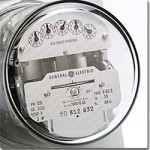The worst electricity company in Texas.
That’s what state regulators are calling Proton Energy of Fort Worth. They say Proton, which serves homes and businesses, botched almost everything that an electric company must do.
The Public Utility Commission of Texas wants to shut down Proton — the second time it has tried to close the 4-year-old company. The PUC also wants to fine the company $2 million. PUC investigators say they can prove that Proton committed at least a thousand violations. That’s a lot of mistakes, even for an electric company.
Proton’s lawyer says that the company is correcting mistakes and that state regulators are too aggressive.
It’s no secret that in the decade since electricity was deregulated in Texas, there have been good companies and bad companies. But Proton may be in a class by itself. For one thing, the address for its corporate headquarters, state records show, is a Shell gasoline station at the corner of Jacksboro Highway and North University Drive. Station owner Ramzan R. Ali is also president of Proton, which by my estimate has more than a thousand customers spread from North Texas to Houston.
Customer service calls are handled elsewhere, but one commenter on TexasElectricityRatings.com writes, “They are unfriendly over the phone. They are unprofessional. Every time I call, it seems like they are running this so-called operation from an apartment.”
As readers of The Dallas Morning News Dave Lieber Watchdog column first learned, Ali runs a company that if not deceptive in its marketing is confusing. An electricity shopper on the Internet who arrives at Proton’s website sees what is probably the lowest variable rate offered anywhere in the state — 5.8 cents a kilowatt-hour. But check the fine print details on the Electricity Facts Label, and the true cost could be as much as a nickel higher.
There’s no Electricity Facts Label on the website, as required, for the company’s second option, its three-month fixed-rate plan. And embarrassingly, on the website’s home page, the universal abbreviation for kilowatt-hour — kWh — is wrongly displayed as kwH.
– – – – – – – – – – – – – – – – – – – – – – – –
More Watchdog Nation News:
Watchdog Nation Partners with Mike Holmes
America meets Watchdog Nation/Listen to Fun Radio Interview
Watchdog Nation Debuts New e-Book and Multi-CD Audio Book
– – – – – – – – – – – – – – – – – – – – – – – –
Here’s the PUC’s case against the company. At least 407 times, the PUC charges, Proton disconnected customers for nonpayment of their bills without giving them proper notice. Twenty-nine of those disconnects came during extreme weather (too hot, too cold), making them doubly illegal.
Proton officials prevented at least 288 customers from obtaining electricity elsewhere after they left Proton by inaccurately listing them as switch-holds. In a switch-hold, a customer owes money to a company and can’t switch to another company until the debt is paid and the hold is lifted. The PUC says the customers didn’t owe Proton money, but the average time people were wrongly kept on switch-holds was 317 days anyway.
When asked about this, Proton provided the PUC with false and misleading information, the PUC states in its petition to revoke the company’s license.
Proton charged 200 customers sign-up fees ranging from $75 to $100, illegal in Texas. The PUC said Proton ignored PUC inquiries on some customer complaints, failed to file a required semiannual report, didn’t translate its marketing materials into Spanish, didn’t make its terms of service available on its website, failed to provide a toll-free number and didn’t include a way for new customers to leave their names and addresses on its website.
There’s more, according to the PUC. Proton listed the termination fee for its variable month-to-month plan at $1,000. There’s usually no termination fee for that.
The company kept billing customers even when they had moved to another electric company, sent multiple bills to the same customer in a single month and charged a $2 fee for those who sent their monthly payments via the U.S. mail.
Proton’s bills sometimes left off dates, dollar amounts owed and meter readings. In a written complaint, one customer told the PUC, “The bill is just a hand-typed email with very little information on the energy I used.”
Proton’s monthly bills failed to inform customers about the state-run shopping site for electricity customers — PowerToChoose.org. No surprise there. Proton, unlike most Texas companies, doesn’t participate on the heavily trafficked site.
Ali, the owner, referred my questions to the company’s hired attorney, Bob Rima, who previously worked as the PUC’s general counsel.
Rima said he couldn’t answer specifics because the PUC’s charges do not include actual cases but generalities.
“Proton is not perfect,” he said. “Its inadvertent mistakes are no different than the mistakes made by” others. “Proton has diligently tried to correct all mistakes.”
The lawyer called the PUC’s action “an aggressive and inflammatory stance.” He said that in a future hearing, which he will seek, he doesn’t believe his former colleagues at the PUC can meet the required burden of proof on the more serious charges.
Two years ago, Ali paid a $10,000 fine to the PUC for failing to provide sufficient information about the company’s finances and its technical and managerial qualifications.
Ali’s latest problems were first reported by R.A. Dyer, a policy analyst for the Texas Coalition for Affordable Power, on that group’s website. Ali released a written statement to Dyer, according to the website, stating that Proton tries to treat customers fairly. However, a small minority of its customers behave like thieves, Ali wrote, “so my job is to make sure good customers should not suffer.”
Dyer tells The Watchdog, “If these allegations are true, this company is a serial rules violator and should be barred from operating in Texas.”
PUC complaint records show some customers agree.
“They are difficult to work with, are not helpful and have not told the truth,” one writes.
“It seems like they will tell me and others whatever they want and change their story to get you off the phone and not help resolve any issue,” another writes to the PUC. “How can you allow Proton … to take our money, then … [cheat] us the consumer, and allow them to stay in business?”
Staff writer Marina Trahan Martinez contributed to this report.
Visit Watchdog Nation Headquarters
Like Watchdog Nation on Facebook
Watch Watchdog Nation on YouTube
Are you tired of fighting the bank, the credit card company, the electric company and the phone company? They can be worse than scammers the way they treat customers. A popular book, Dave Lieber’s Watchdog Nation: Bite Back When Businesses and Scammers Do You Wrong, shows you how to fight back — and win! The book is available at WatchdogNation.com as a hardcover, CD audio book, e-book and hey, what else do you need? The author is The Watchdog columnist for The Dallas Morning News. Visit our store. Now revised and expanded, the book won two national book awards for social change. Twitter @DaveLieber



 Anthony Carrolla of Arlington: “The fine is over the line in terms of generosity — especially since Amigo knowingly engaged in deceptive pricing practices, sent out collection notices within just a few days of delayed billing and, at least in my case, would not acknowledge that I was being billed incorrectly and threatened with disconnection.
Anthony Carrolla of Arlington: “The fine is over the line in terms of generosity — especially since Amigo knowingly engaged in deceptive pricing practices, sent out collection notices within just a few days of delayed billing and, at least in my case, would not acknowledge that I was being billed incorrectly and threatened with disconnection.

